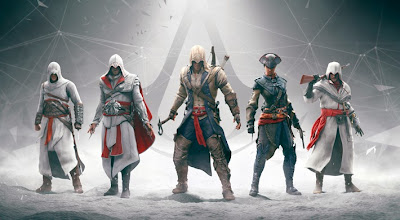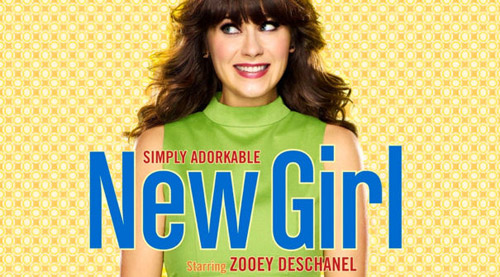But oh, oh did it get bad. How did that happen?
It was a gradual thing. People say it went downhill after the second season, and became unsalvageable after the fourth. It's something we all should have seen, but we all had hope, faith in this great premise. I will give the show credit up-front: I've read the books. The show made some good decisions on where to deviate. With that compliment out of the way...
Plot
Dexter's plot was quite repetitive. It should be noted that Dexter would actually be greatly improved if someone were to go through, and edit the series thusly:
Season 1: Introduction and character study with Ice Truck Killer
Season 4: Marriage of Dexter and Rita. The season 4 serial killer and ending, with the exploration of reconciling a serial killer with family.
Season 7: Hannah McKay and Dexter. It ends with her being sent to jail. She DOES NOT come back.
Season 2: minus Lilah and Doaxes' death. It EITHER ends with Dexter's capture and execution, or extends to a few episodes past this dealing with the implications of this discovery.
Now, I understand the vitriol at the idea of Hannah being included in this, since she's part of the horrific final two seasons, and the writers had a fetish for her, but hear me out: Dexter has met with three serial-killer-esque women. Hannah was the most well-developed and independent of the three, having a backstory that didn't take a single simple sentence, and clearly having had a life before Dexter. So if we had to pick one, she should be that one.
Characters
When I build a character, I start with a wooden block with an idea written on top of it in Sharpie. That block is then thrown into a metaphorical wood chipper, and I take what comes out, and use it. For non-writers, that means: I start with an archetype, throw the character into a bunch of situations designed very specifically to break them. Once I know what makes them break, I know them at their core. The problem with this is: what I want may not be what I get.
For example: I started with a man named Jeffery. Jeffery was gay. A friend of mine and I had an idea to make a gay couple, to troll roleplays where there was an enforced gender percentage (guys and girls had to be the same number), because of the obvious implications that they would all pair up.
I threw Jeffery in the woodchipper, and he came out a very possessive, angry man with control issues, who was so deep in the closet he came out in Narnia. Theoretically, this doesn't matter. I can still make him come out of the closet and profess his love to some random guy. But it won't be real, and the audience can tell.
Dexter's writers missed this lesson of character-building. The characters are bent and torn depending on what the plot wants them to be.
Each character had a core that was true, but the show wasn't interested.
Rita's core is a recovering battered woman, but Rita's sexual evolution happens too quickly. In one episode the suggestion of sex makes her clearly immensely uncomfortable, but a few episodes later she gives him a blowjob. This evolution works great for Dexter's character arc, but completely neglects hers.
LaGuerta's core is a woman trying not to show how vulnerable she is. She's smart, but trying to reconcile her job with her gender identity. Yet, she has several scenes flirting with Dexter which feel out-of-place, her loathing of Debra feels out-of-place--theoretically this could be jealousy on how Debra reconciles her gender identity, but I can't give this show that much credit. She's also frequently shown as being rampantly incompetent, or super-competent depending on whether the show wants her to be. And of course, there's the sudden relationship with Angel.
Deb... oh Deb. Her dialogue feels forced, but that's just for starters. Deb has a pretty good start. She feels for the hookers she works with at the pilot. Her frustration is palpable and easy to empathize with. She's shown as being pretty unlucky with men, even before she falls for the Ice Truck Killer. Here's where the problem is: Deb doesn't learn from her mistakes. She spends the next 7 seasons treading the same waters. A good, a natural, progression for Deb would be: after the Ice Truck Killer, she takes a hiatus from men. Perhaps she gets rather paranoid about men after that, tries to do background checks on them, or keeps having flashbacks. This is somewhat addressed, with her showing some PTSD symptoms with her next boyfriend (I call him Gym Guy) and then having her fall in love with an FBI Agent. But then she goes right back to 'bad guys.' The show tries to throw this away as a Freudian excuse, but that's all it is: an excuse.
At least the show attempts to develop the women. Angel and Matsuka are one-note characters, whose note changes once every few seasons. (Angel's decision to quit the force, for example.)
There is one giant exception to this rule: serial killers. Almost all of this shows villains and antiheros are fantastically developed. The boy whose first kill was a man who raped him, who begins pimping himself out, felt real, if really sad. Season 4's serial killer is considered the best of all time. And of course, don't forget the Ice Truck Killer. (The weakest, I would have to say, is Lilah.) Of course, another exception to the exception, and there's a big one: Dexter himself.
Dexter
Or, more accurately, how the writers treat him. Dexter starts off well, and the writers have a good relationship with him. They're interested--as are we--and they care to a degree--as do we. But they don't lose sight of who he is: a serial killer. They don't lose sight of what this show will be: a tragedy. It's contemplated frequently throughout the first season, and thoroughly explored in the second: Dexter will get caught. It's only a matter of time.
From there on out, there were minor threats. Character after character would get somewhat suspicious, but then they would forget, or decide they didn't care.
I will give it some credit: it does end in a tragedy. The tragedy is not Dexter's, but Deb's. Deb goes into a coma. Dexter pulls the plug, and he dumps her into the ocean, then he goes off to get his happy ending, leaving his son with another serial killer. Let's pretend that this all makes sense for a minute.
Why does Dexter deserve the happy ending? Why should anyone have gotten one? This. Was. A. Tragedy. By the end, almost everyone's lives are destroyed, except Dexter's.
So how did it happen? How did the show lose sight of Dexter, and what was clearly the plan?
Well, it's simple, and it's something authors frequently fall prey to. Authors have to have a strange relationship with characters. If we don't like them, respect them, the audience can tell (Look at Stephanie Meyer's works, and her women, for example) and it makes the journey difficult, if not impossible. However, if we grow to love them, we forget what needs to be done. This love makes it harder to push them, break them, and kill them. I had a huge problem with the above. Then I wrote a slasher film, and got over it.
The fact is: they loved to break Deb, but they loved to love Dexter. They tried to justify this, tried to say he wasn't a psychopath, that he was made that way--even shoehorned in a brand new character to try and say this. This transition between loveable psychopath and wait-he's-just-misunderstood was at the beginning of season 5.
Which you'll notice is when the audience started to give up.
But again, the seeds were planted before then. Note how, every time Dexter has to make a very tough decision, it seems to be made for him. Doaxes and Lilah, is of course the biggest example. Dexter considers changing everything, but he is not allowed to make that decision. Lilah makes it for him.
But again, the seeds were planted before then. Note how, every time Dexter has to make a very tough decision, it seems to be made for him. Doaxes and Lilah, is of course the biggest example. Dexter considers changing everything, but he is not allowed to make that decision. Lilah makes it for him.
Audience
One thing I stress, for any medium: don't lose sight of your audience. I do admit, audiences are broad and full of crazies, but an average opinion does start to come out if you listen for more than a few seconds. It's harder to do this with TV Shows, since you can take notes on reactions as it airs. (Of course you can't totally change mid-season based on reactions, but you can always improve for following seasons.) That doesn't mean Dexter didn't manage.
The show-runner does make a decent point, that we're okay with violence but not with 'love.' I'm going to ignore the cultural landscape (where violence is much less regulated than sex), and say this: if you had led up to it better, it might have worked.
Deb's relationship with him had never seemed like anything other than brother-sister until they tried to declare a paradigm shift.
But the fact is, they just kept ignoring us. We say the side characters aren't well developed, yet nothing changes. We hate Lilah, so they give us Lumen. We don't like Lumen, so they give us Hannah. We were kinda split on Rita, so of course she had to die. The most egregious example was of course, in those links, where the show-runner tells us we're wrong for disliking Deb's newfound love of Dexter.
This wasn't a thing a few people were upset about. I haven't met a single person (even on the internet) that had been rooting for this, or even expecting it. We were all blind-sided, in a really horrible way. (Twists with build-up are okay, where it makes sense in retrospect, but twists without it are really bad.)
Conclusion
All the problems with Dexter fell upon the writers. The actors did their best, and their efforts were rewarded, but the foundation of Dexter--the writing--was broken. Of course the house was going to fall.












